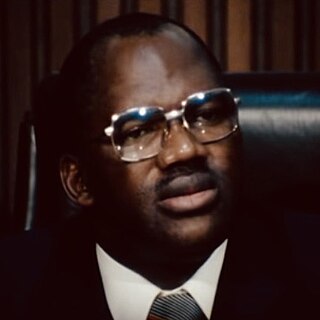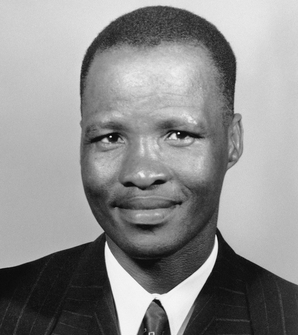Related Research Articles

Bophuthatswana, officially the Republic of Bophuthatswana, was a Bantustan that was declared (nominally) independent by the apartheid regime of South Africa in 1977. However, its independence, like the other Bantustans of was not recognized by any country other than South Africa.

Transkei, officially the Republic of Transkei, was an unrecognised state in the southeastern region of South Africa from 1976 to 1994. It was, along with Ciskei, a Bantustan for the Xhosa people, and operated as a nominally independent parliamentary democracy. Its capital was Umtata.

A Bantustan was a territory that the National Party administration of South Africa set aside for black inhabitants of South Africa and South West Africa, as part of its policy of apartheid. By extension, outside South Africa the term refers to regions that lack any real legitimacy, consisting often of several unconnected enclaves, or which have emerged from national or international gerrymandering.

Lennox Leslie Wongama Ngweyesizwe Sebe was the chief minister of the Xhosa bantustan of Ciskei after its self-rule in 1972, and the nominally independent country's first president from 1983. His praise name (isikhahlelo) was Ngweyesizwe.

King Kaiser Daliwonga Mathanzima, misspelled Matanzima, was the long-term leader of Transkei. In 1950, when South Africa was offered to establish the Bantu Authorities Act, Matanzima convinced the Bunga to accept the Act. The Bunga were the council of Transkei chiefs, who at first rejected the Act until 1955 when Matanzima persuaded them.
Princess Stella Nomzamo Sigcau was a Minister in the South African Government. Sigcau was also the first female Prime Minister of the bantustan of Transkei before being deposed in a military coup in 1987.
The system of racial segregation and oppression in South Africa known as apartheid was implemented and enforced by many acts and other laws. This legislation served to institutionalize racial discrimination and the dominance by white people over people of other races. While the bulk of this legislation was enacted after the election of the National Party government in 1948, it was preceded by discriminatory legislation enacted under earlier British and Afrikaner governments. Apartheid is distinguished from segregation in other countries by the systematic way in which it was formalized in law.

Nyandeni Municipality is a local municipality within the OR Tambo District Municipality, in the Eastern Cape province of South Africa. Its administrative seat is the town of Libode. The entire municipal area falls within the former Transkei Bantustan area. The urban population is mainly located in the two small towns of Libode and Ngqeleni.
The Transkei National Independence Party (TNIP) was a political party in the nominally independent South African homeland of Transkei. It was founded by the Matanzima brothers, Kaiser and George. The party advocated cooperation with the South African government. As of 1985, the leader of the party was George Matanzima. The party governed Transkei from 1976 until the 1987 coup d'état by Bantu Holomisa.
The Democratic Progressive Party was a political party in the South African bantustan of Transkei. The party condemned apartheid rule. In the 1981 elections, the party won one out of 75 seats. In the 1986 elections it won two seats.
King Botha Sigcau was a King in Eastern Pondoland, Transkei, South Africa (1939–1976) and later the figurehead President of Transkei from 1976 to 1978. A graduate of the University of Fort Hare, Sigcau was an early supporter of the Bantu Authorities in Transkei and was rewarded by the South African government when he was appointed chairman of the Transkei Territorial Authority, the parliament before independence.
Parliamentary elections were held in Ciskei between 19 and 23 February 1973. As there were no political parties at the time, all candidates ran as independents.
Parliamentary elections were held in QwaQwa between 19 and 21 April 1980. The Dikwankwetla Party won all 20 of the elected seats.
Parliamentary elections were held in Transkei on 20 November 1963. Although the Democratic Party won a majority of the elected seats, the Transkei National Independence Party emerged as the largest party in the Legislative Assembly after the appointment of a further 64 members.
Parliamentary elections were held in Transkei on 24 October 1973. The Transkei National Independence Party won 25 of the 40 elected seats.
Parliamentary elections were held in Transkei on 29 September 1976. The Transkei National Independence Party won 69 of the 75 elected seats.
Parliamentary elections were held in Transkei on 24 September 1981. The Transkei National Independence Party won 74 of the 75 elected seats.
Parliamentary elections were held in Transkei in September 1986. The Transkei National Independence Party won 57 of the 75 elected seats.
Parliamentary elections were held in Venda on 15 and 16 August 1973. The Venda Independence People's Party won 13 of the 18 elected seats in the Legislative Assembly.